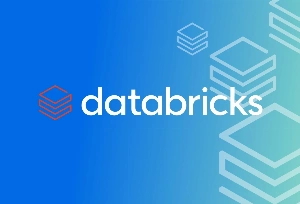Could you imagine some 10 years ago the possibility to order a taxi, pizza or even find a partner using an app on your phone? Nowadays phone applications have become an inevitable part of our lives and are used for everything: from gaming to banking. And we won’t drop a bombshell saying that users always expect companies to do business with them via mobile devices.
For this reason, when a company faces the need to develop an application several decisions should be made including the choice between the native and hybrid approaches.
Before we start comparing native and hybrid technologies, it’s vital to mention that each of them has advantages and drawbacks and your final decision should be based on the objectives of your business.
Difference between native and hybrid apps
There's no definite answer as to which direction is best to take, as it depends on various factors, including the intended use of the end product by your users. However, there are distinct differences between the options that may inform your decision.
The main difference between native and hybrid apps lies in the development process. Native mobile apps are developed for a specific platform either Android or iOS, therefore they are built on corresponding programming languages. For example, iPhone apps are written in Objective-C and Swift and Android apps are written in Java or Kotlin accordingly. Meanwhile, hybrid mobile apps are built with several web technologies (HTML, JS, CSS) and rely on cross-platform functioning.
Let’s have a deep dive into the hybrid vs native apps pros and cons.
Advantages of hybrid mobile apps:
1. One codebase for every platform
For sure, it is the greatest advantage of hybrid apps. The developers write code once and it runs on any platform. There is no need to build an individual codebase for Android or iOS. Once the code has been built you can use it anywhere.
2. Easier and faster to develop and maintain
There is no need to hire two large teams of developers and spend months or years on developing. A small team of professionals can create, test and launch a product within a relatively short period of time. As there is only one code base, you can add as many functionalities as you want to multiply versions of your app.
3. Cost-effectiveness
The price is not high in comparison with the development of Native applications due to the short amount of time required for the team to write not that complex code.
Advantages of native mobile apps
1. Performance
In contrast to hybrid apps, you just can’t apply the same code to different operating systems. Being written for a specific platform such apps are known for smooth, fast performance and reliable design.
2. User experience
The style of every operating system is completely different and even a genius architect can’t build an app that will perfectly fit both IOS and Android. There must always be a compromise. Here native technology is definitely an uncontested winner because it allows developing an app following all technical and user experience guidelines of a specific OS.
3. Flexibility
Native applications can easily access and utilize different built-in devices such as calendar, camera, GPS, address book or similar.
4. Security
The effective security of native applications is one more substantial advantage over hybrid apps. That’s why the financial institutions, insurance companies, and banks opt for this kind of application for the sake of protection of customers’ data.
Summing up
Now it’s time to decide which technology to choose. Native applications have smooth performance and great user experience which are important features to stay ahead in today’s competitive market. But keep in mind, it requires a considerable investment of time and money to bring that idea to life. On the other hand, if you need an app for content sharing there’s no need to spend a fortune on it, as hybrid technology is enough for a simple app to completely satisfy your target audience.
Therefore, we suggest defining your goals first and then you’ll find technology that meets your requirements. In case you have some doubts, our experts at inVerita will suggest the right approach for your app development. Just drop us a message!






